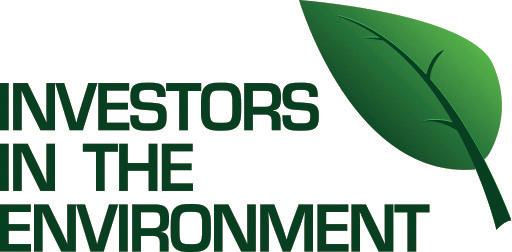
4 minute read
Green column
How can Human Resources professionals and practice contribute to environmental sustainability?

Advertisement
The impact of climate change and the potential for reputational risk has increased the need for organisations to address environmental sustainability. Human Resources professionals have a unique role in organisations as they have connections with all employees at points throughout their employment journey through a wide range of practices and activities. HR professionals are partners within the business, and having a sustainability remit, can increase stakeholder involvement and collaboration to progress pro-environmental actions across the organisation.
Consider your organisation’s Values, Strategies and Plans
Rising profiles of purpose-driven organisations or roles that contribute to society and the environment demonstrate an opportunity to recruit and retain talent when your values and mission clearly, and credibly show how you are working on your sustainability journey. Has your organisation already included sustainability in its overarching principles and translated these into actions? If not, can you influence those who implement the organisational strategies to incorporate relevant issues? Does your organisation have an Environmental Sustainability Strategy or a Net Zero Plan that you could influence and relate to a People Strategy and Plan? Human Resources practitioners and managers could also facilitate and role-model through the whole range of Human Resources practices. For example, consider the carbon footprint of recruitment activities - can you reduce paperwork or conduct interviews online to reduce travel?
Create an environmentally sustainable culture
More and more people are expecting organisations to demonstrate positive actions to protect the environment. An organisation’s culture can influence employee and customer attraction and retention. Culture can be described as ‘How we do things here’. Ensuring consistency between espoused values and actual outcomes creates trust and loyalty. Human Resources should integrate environmental sustainability through all of the organisation’s policies, procedures and practices, and articulate this to all stakeholders.
Check your organisation’s competency framework
Competencies should contain knowledge about the environmental impact of companies in general, and specifically of those in your sector, as well as recognising the effects of climate change on the activities of your organisation. Skill competencies should be role-specific, and behavioural competencies should cover aspects of ethical decision-making at all levels of the organisation. As we move toward a net-zero future, employees will need encouragement to get onto learning pathways that will help them incorporate green skills into their roles. These learning pathways will need to embrace general awareness alongside the adoption of the technical skills that may be required to help the company meets its sustainability targets.
Incorporate environmental sustainability into Job Descriptions and Person Specifications
As well as being used for recruitment and selection, Job Descriptions and Person Specifications enable employees and managers to understand what is required in any role. Reference could be made to relevant competencies, as well as explaining what the person’s responsibilities, authority and accountability are in terms of environmental sustainability.
Include environmental sustainability in the induction process
This is often the employee’s first experience of socialisation in the organisation and where its values and culture can be established and encouraged. By explaining ‘how we do things here’, ‘what is important to us’, and ‘what we expect from you’,
the induction process can reinforce how the organisation aims to achieve its sustainability targets. You can also refer to generic environmental sustainability competencies and highlight those which are job specific for the new starters.
Include sustainability objectives in Performance Management targets and goals
Specific individual and team objectives can be agreed upon around sustainability targets to help your organisation reach its objectives. Performance objectives could include oneoff targets to be completed by specified dates or ongoing standards to be met.
Embed sustainability into learning and development processes
Consider sustainability and the environmental impact of both the content and the process of your learning and development. All programme content should reference the organisation’s green ambitions and the process of delivery should consider the resulting carbon footprint, for example, face-to-face versus online.
Align rewards and recognition with sustainability considerations
Make sure that your employee rewards or benefits have a positive environmental impact, and that any recognition is aligned with the organisation’s values. Feedback and praise can have a greater effect on individuals’ self-esteem and engagement than extrinsic motivators. Examples include, are your pension fund investments in line with your organisation’s ethical and environmental standards? Are reward schemes or prizes environmentally friendly?
Ensure that leaders demonstrate environmentally sustainable behaviours
Senior management, including senior HR professionals, must be supportive of environmental initiatives. Leaders must be seen to be green if they are to encourage employees to be green too. All your managers can be exemplars for this, including those in Human Resources, and encourage and enable people throughout the organisation to participate in environmental behaviours and initiatives. At this level, the leadership should be contributing to that culture of sustainability and mentoring employees through this journey.
The contribution of Human Resources to environmental sustainability
From this brief review, it is clear that there are many opportunities for Human Resources practices to promote environmental sustainability in organisations through adjustments to existing processes – from awareness to empowerment. In this way, Human Resources can assist an organisation’s plans for Net Zero or the implementation of its Environmental Management System and the support offered by Investors in the Environment. For more information read the guide Dr Jan Maskell wrote for CIPD: Embedding environmental sustainability in your organisation: A guide for HR professionals https://bit.ly/3RljCND Also, see: Green skills for the green economy report by Deloitte UK https://bit.ly/3KQWBj9
This article was submitted by Dr Jan Maskell, Principal Consultant and North West Regional Lead at iiE.











